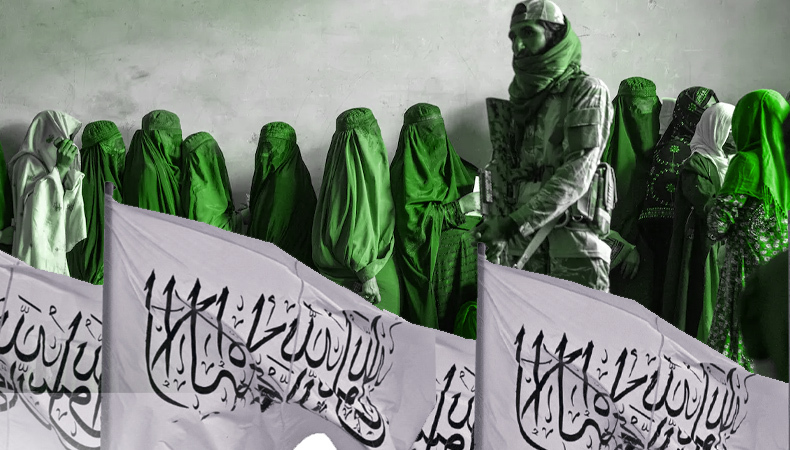Women’s Struggle: The Harsh Reality of Taliban’s Gender Apartheid

Afghanistan’s dilemma has been made worse by the Taliban’s continuous focus on restricting women’s rights in a nation facing serious economic and social problems. The Taliban’s actions have not only eliminated women’s fundamental rights but also continued a cycle of misery and marginalization under the cover of their rigorous interpretation of Islamic law.
The Taliban’s fixation with mistreating women has taken center stage in the midst of crumbling financial institutions, widespread famine, and worsening mental health problems. 54 of the 80 decrees made during their two-year administration specifically target women, showing a purposeful effort to deprive them of agency and liberties. The terrible effects of these restrictive regulations have led young women and girls to despair and even death.
The Taliban’s commitment to stifle female advancement is further demonstrated by their closure of girls’ schools after an early age and their restriction on women enrolling in universities. In addition to denying girls access to school, this fosters outdated ideals and produces a generation of men who are rife with hatred.
The preponderance of domestic abuse, worrisome suicide rates, and antiquated customs like forced marriages only serve to highlight the situation of Afghan women. Afghanistan’s future is still women, who represent untapped potential, resiliency, and wisdom despite the country’s dreadful circumstances.
Keep Reading
The international community needs to act quickly. It is important to heed the UN Security Council’s call for a “multipronged strategy”. Initiating a thorough national dialogue, encouraging the engagement of centrist political and civil society groups, and rigorously monitoring the Taliban’s adherence to the Doha Accord are all important components of this plan. Furthermore, jurisdiction should be given to international legal authorities to guarantee the upholding of human rights, the fight against corruption, and the supremacy of the law.
Although rigid ideals may currently rule the Taliban, there is still room for practical change. Inclusion, empowerment, and independence of Afghanistan’s female population are necessary for its recovery and reconstruction. Afghanistan will only genuinely prosper when women are permitted to participate to the development of their country.
The heartbreaking question looms as the world watches Afghanistan navigate these turbulent waters: How much more pain must this country experience before the Taliban concede that women are crucial to its rehabilitation and prosperity? The solution lies not just in Afghanistan’s future but also in the global community’s united determination to fight for the rights of its women and girls.







